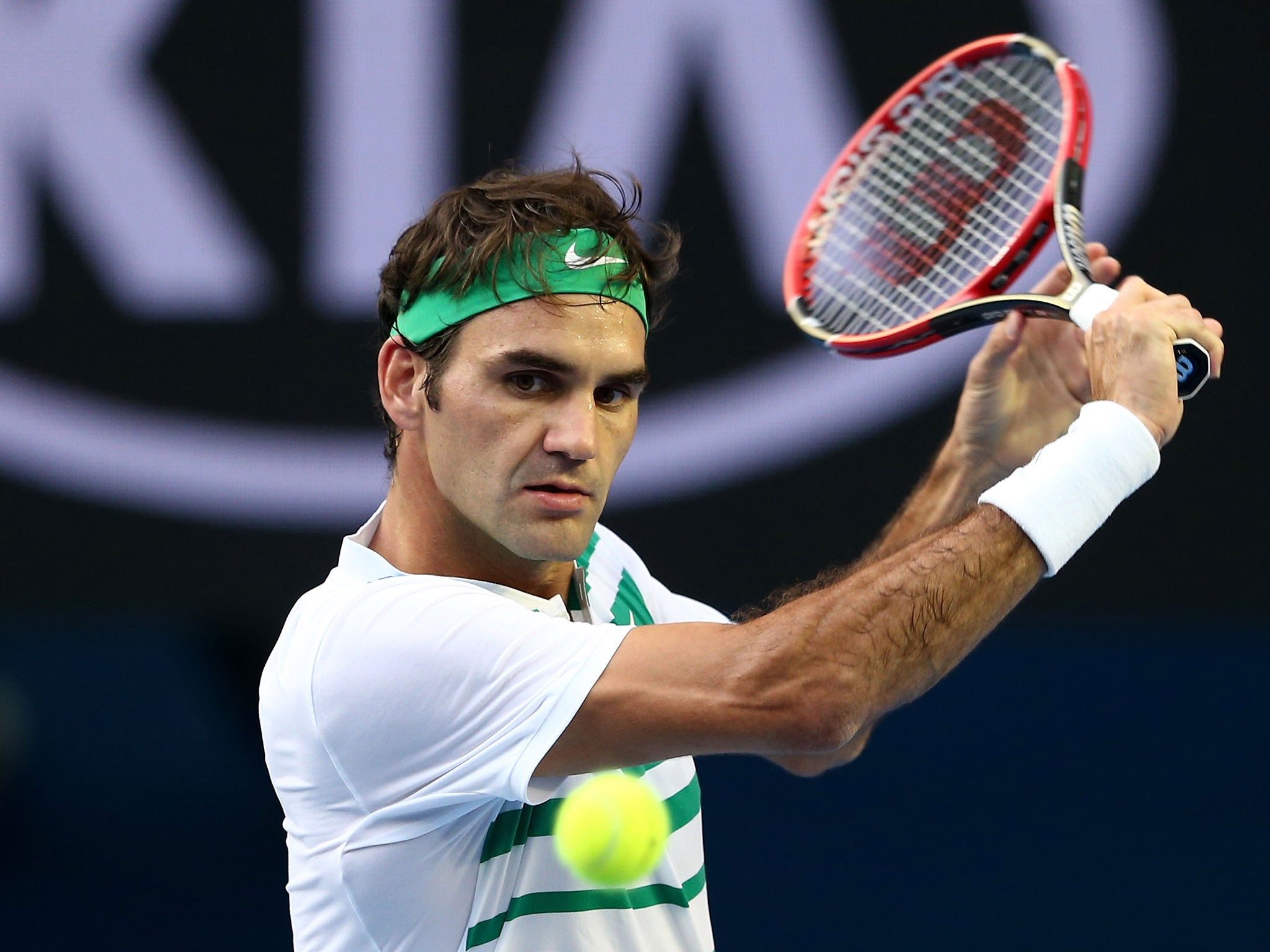Tennis match fixing: Roger Federer tells accusers to name names in the fight against fixers
The 34-year-old Swiss player says that until names are revealed the allegations are merely 'pure speculation'

Roger Federer wants the authors of a report alleging widespread match-fixing in tennis to name the players suspected of being involved. The 34-year-old Swiss, who would also like to see more resources put into the sport’s fight against corruption, said that until names were named the allegations would be “pure speculation”.
An investigation into match-fixing released by BuzzFeed News and the BBC was the talk of the first day of the Australian Open here yesterday. While the tennis authorities insisted that every effort was being made to root out corruption, some players cast doubt on the allegations.
In the investigation, which will reveal further findings in an edition of File on 4 on Radio 4 tonight, it is alleged that the tennis authorities have been regularly warned about the activities of a group of 16 players, all of whom have been ranked in the world’s top 50 and some of whom are Grand Slam champions. Half of those players are competing here and none of them have been sanctioned it was claimed. The investigators said they could not name them because it was impossible to prove match-fixing without access to phone, bank and computer records.
Federer said it was “so easy” to make such allegations. “I would love to hear names,” he said. “Then at least it’s concrete and you can actually debate it. Was it the player? Was it the support team? Who was it? Was it a doubles player, a singles player? Which Slam? It’s so all over the place. It’s nonsense to answer something that is pure speculation.”
Gilles Simon, a member of the Association of Tennis Professionals’ Player Council, said: “It is a bit like the anti-doping – you feel like someone is dropping a bomb on the first day of a Slam. Is there any evidence? Say it and everyone will be happy to know and to take action.” He added: “When I saw in the article there were 16 names, I knew that it was rubbish, because 16 is too many.”
None of the players who spoke about the allegations here could recall any experiences of attempted match-fixing except for Novak Djokovic, who confirmed a report from nine years ago that he had been indirectly offered $200,000 to throw a match in St Petersburg. “I was approached through people that were working with me at that time, that were with my team,” Djokovic said. “Of course, we [rejected it] right away. The guy that was trying to talk to me, he didn’t even get to me directly. In those days there were some rumours, some people going around. They were dealt with. In the last six or seven years, I haven’t heard anything similar. I was never approached directly.”
Djokovic described match-fixing as “a crime in sport” and added: “Of course, there is no room for it in our sport.”
Serena Williams said she had never suspected match-fixing in any match she had played. “If that’s going on, I don’t know about it,” she said. “I can only answer for me. I play very hard and every player I play seems to play hard.”
Marin Cilic, the 2014 US Open champion, also said he had never seen any evidence of match-fixing. “I don’t think it exists, not at this high level,” the world No 13 said.
Federer said he would like more money to be spent on the fight against match-fixing. The Tennis Integrity Unit, which is funded by the sport’s governing bodies, was set up eight years ago to investigate allegations of corruption. “Hopefully there’s more funding to it,” Federer said. “It’s the same as doping. We’ve got to be super-aggressive in both areas.”
Join our commenting forum
Join thought-provoking conversations, follow other Independent readers and see their replies
Comments